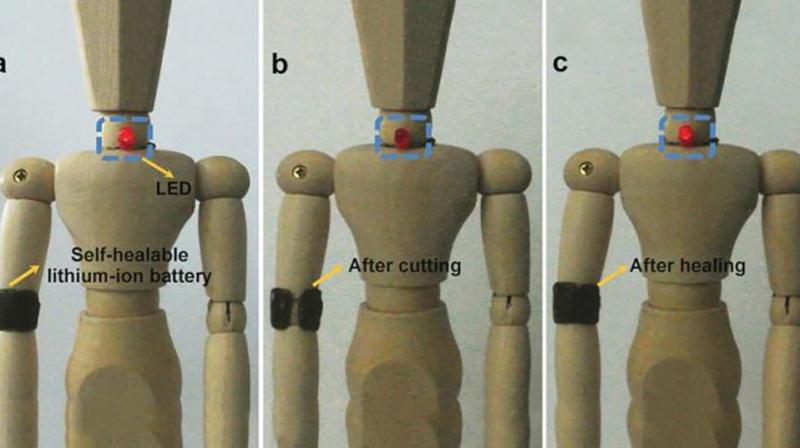Now self healing lithium batteries developed by scientists

Although still in its early experimental stages, flexible electronics are now starting to grow strong for products like LED-laden clothes, medical sensors, and fitness trackers. But powering these things become a major issue — with rigid lithium-ion batteries unable to bend with the devices without breaking, rupturing, and possibly leaking out toxic and flammable materials. Researchers have now developed a battery claimed to mitigate these risks, with the ability to “self-heal” in the event of a breakage or a rupture.
Electrically conducive materials that can be bent and twisted are the backbone of the emerging field of advanced wearables, but with a power source that compliments the design and not become a barrier for it.
Developed by a team of scientists from China’s Fudan University, the Samsung’s Advanced Institute of Technology and Samsung R&D Institute, they have developed a line of self healing polymers developed that might be put to use in self-mending bio-plastics, airplane materials, and scratch resisting paints, and now the team is tuning tech to create more durable lithium-ion batteries.
The researchers state that when their battery is broken, it can be repaired simply by pressing each of the broken ends together. This causes the self healing polymer and the carbon nanotubes to bind together in only a few seconds — returning to full functionality even after a the process has been repeated multiple time.
One of the other advantages over traditional lithium ion batteries is that the lithium compounds are sealed inside and will not be susceptible to leakage. They will not decompose when exposed to air — cellulose-based gel solution is stable and is not flammable or toxic.

